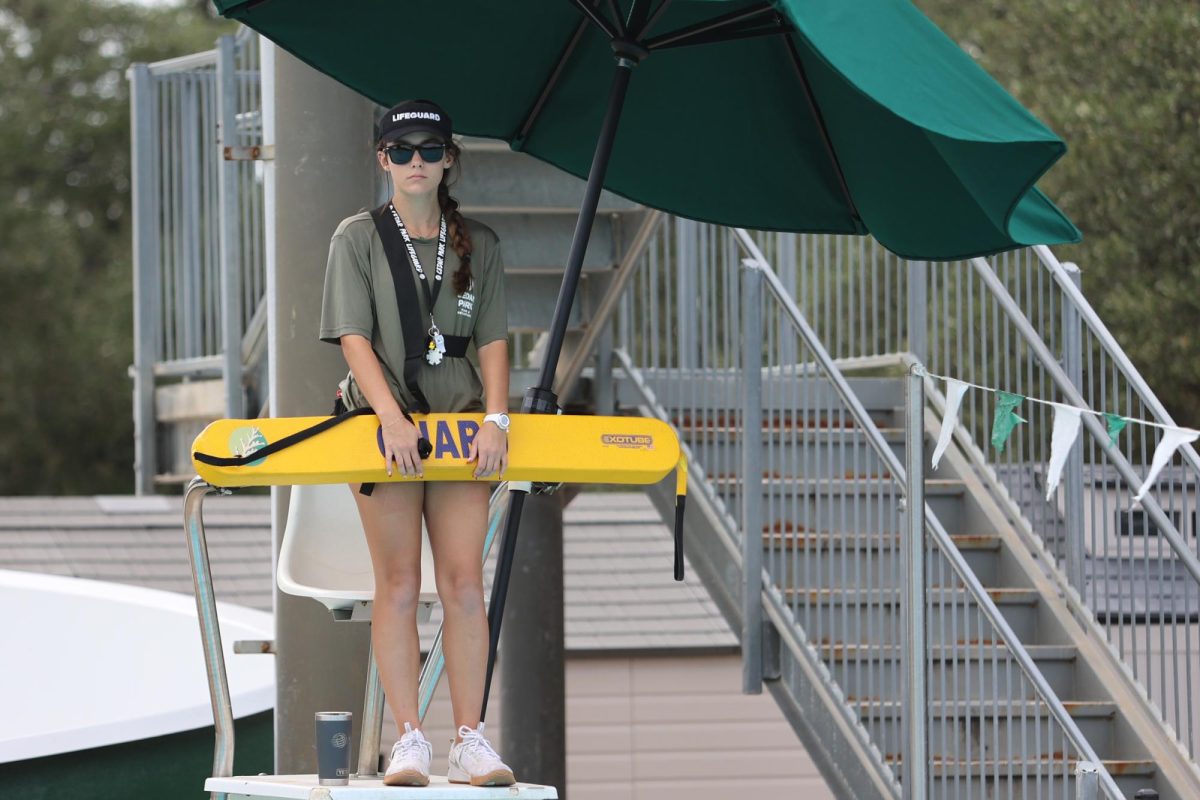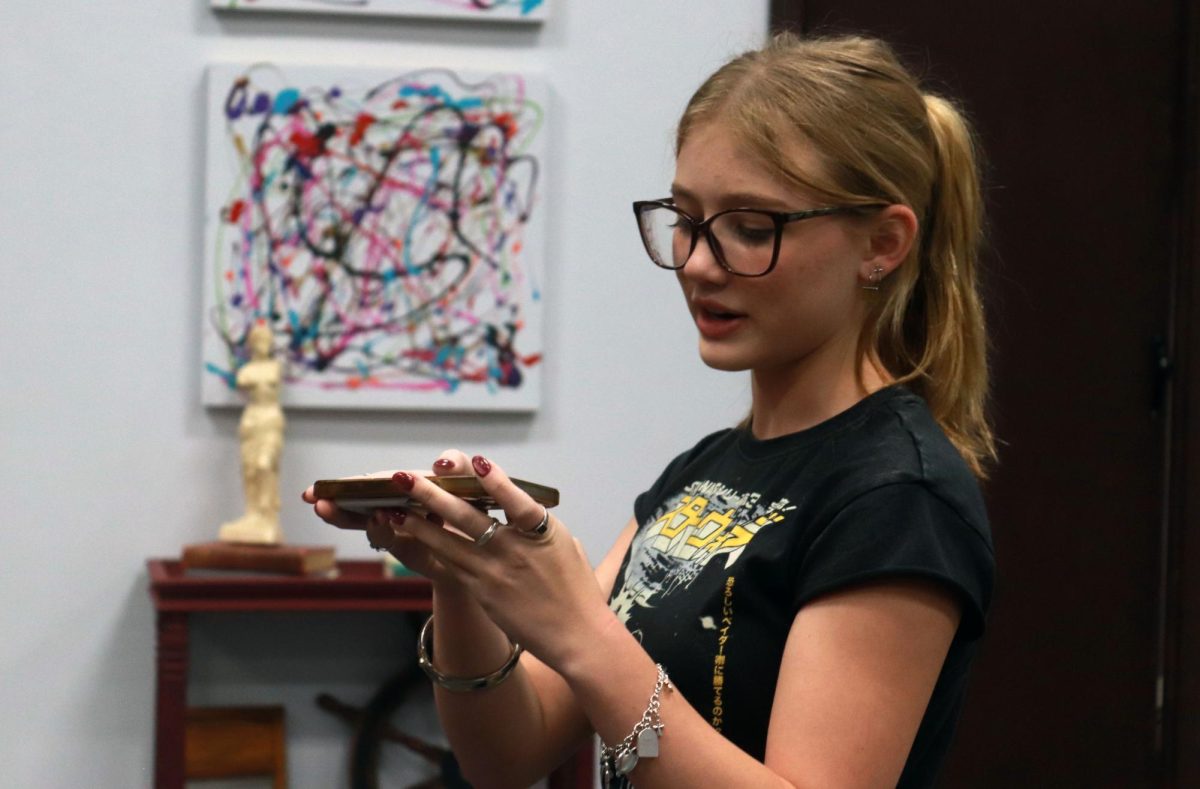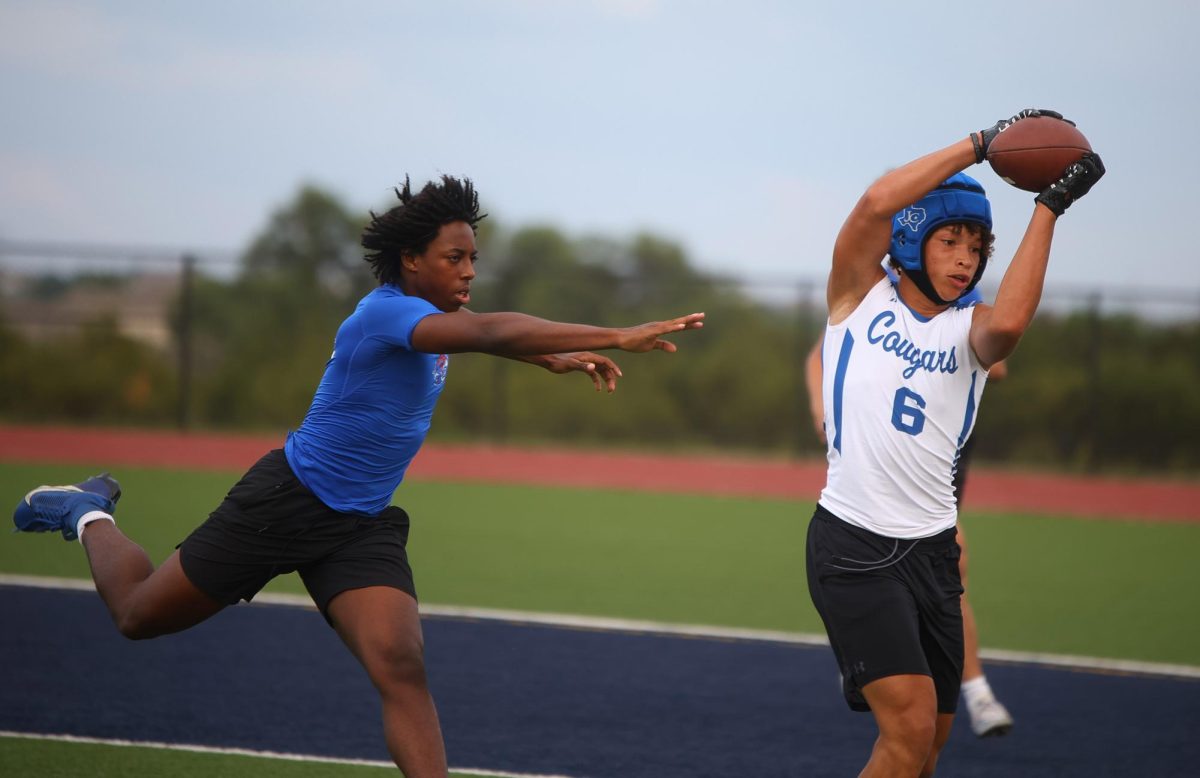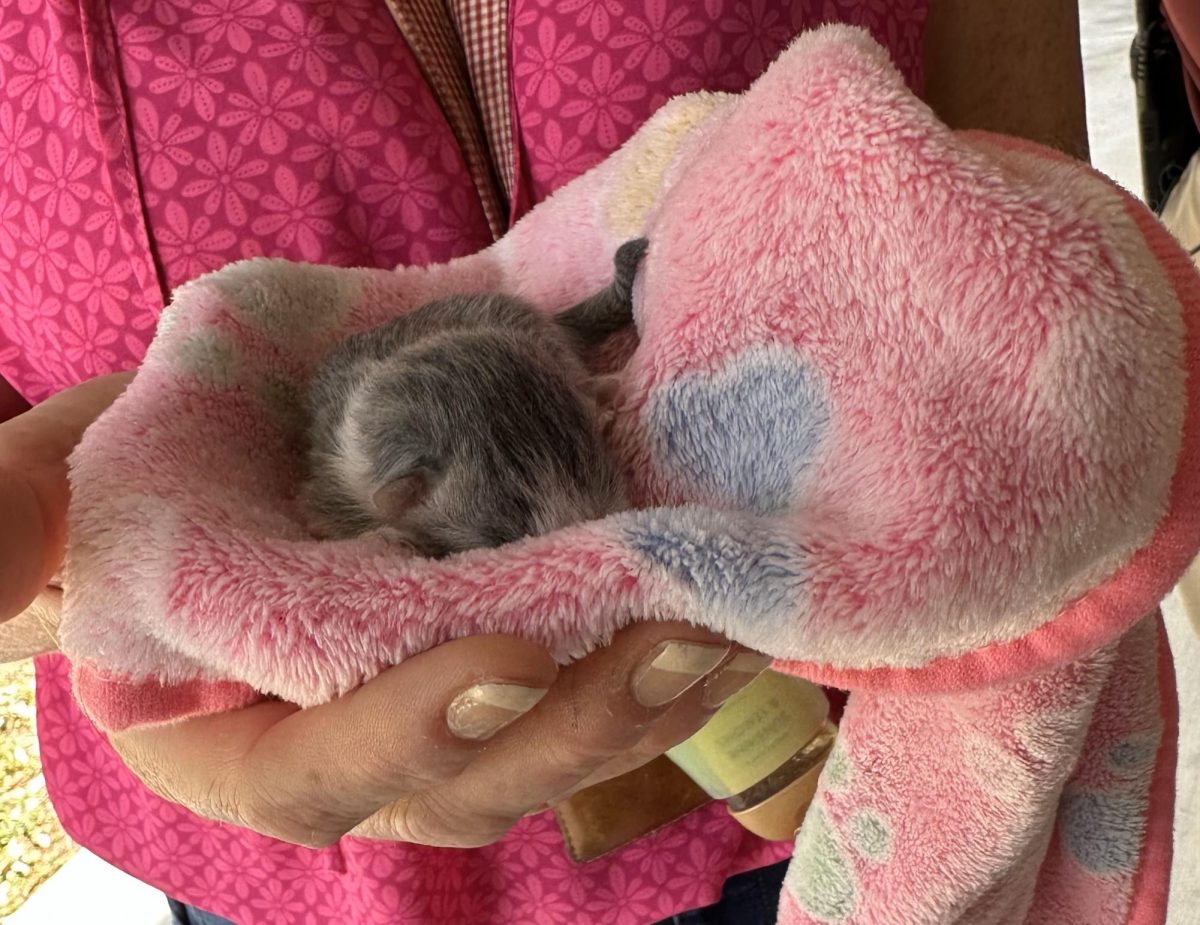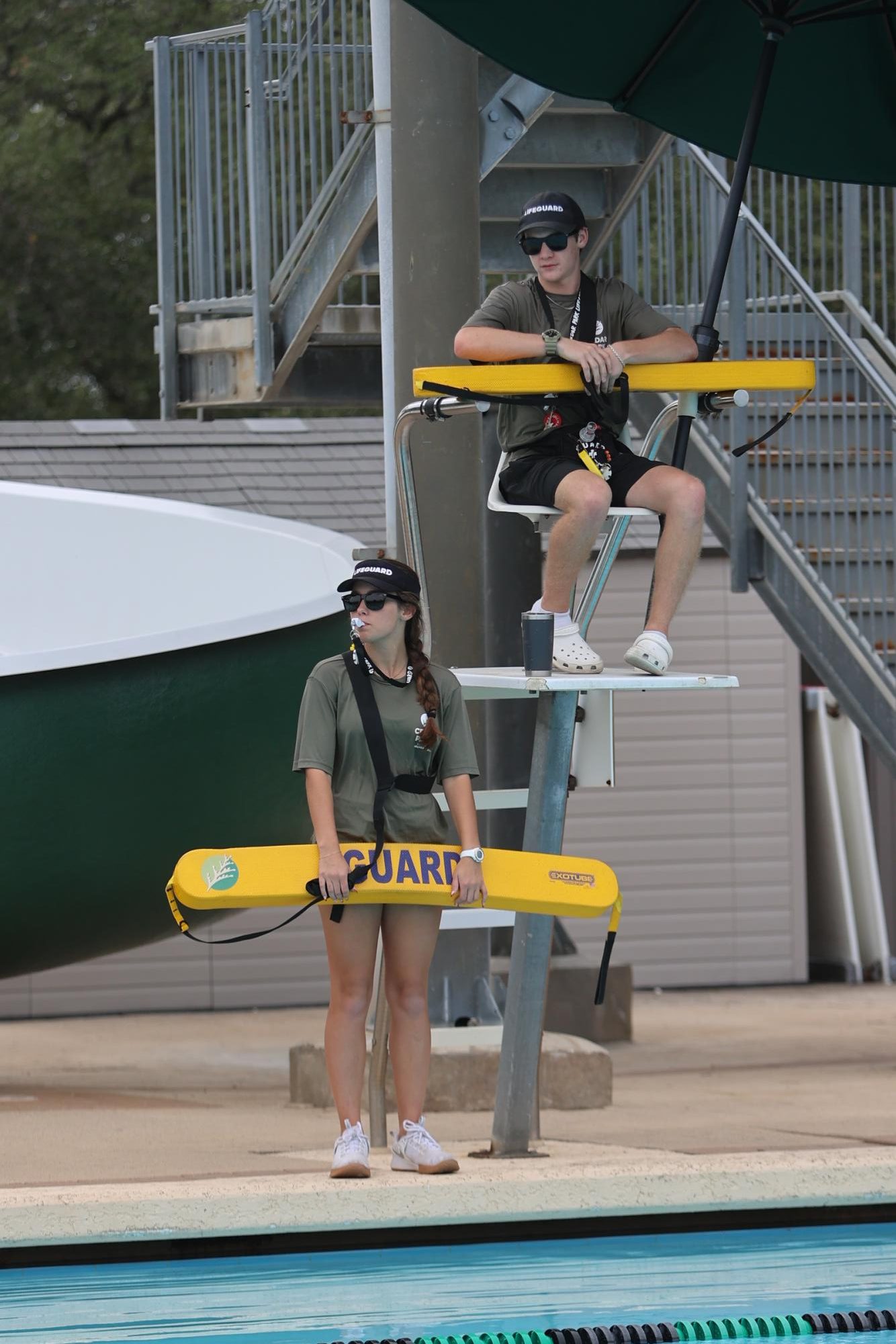
Splash! Ecstatic children leap into the Elizabeth Milburn Pool, the crisp water enveloping their sizzling skin. Among the clamorous horde, a 4-year-old child’s head dips underwater.
Two lovebird lifeguards, juniors Banner Morse and Harlyn Smith, leap into action.
“It gives you a lot of perspective on life and how you can help other people,” Morse said. “It’s kind of just made me realize I like being there to help people.”
The two met a year ago when they both attended last year’s homecoming parade on the wrestling float. With a mutual involvement in wrestling, the two began to grow close during the sport’s season.
“We’ve got to grow [from lifeguarding],” Smith said. “We got to know each other a lot better, learn a lot of our strengths and weaknesses, and then grow off that.”
Morse and Smith began working together in May, they said. Lifeguarding gave them both insight on their future with interest in helping people.
“I’ve always wanted to be a lifeguard,” Smith said. “That’s something I’ve been passionate about, because I’ve always wanted to help people. So once Banner mentioned a lifeguard position, I was like, ‘oh my gosh it’s open. Let me take my opportunity.’”
A normal work day for the two consists of four to six hours on the job, rotating every 20 to 40 minutes on and off the tower.
“Occasionally here and there, we’ll have some double tweets,” Morse said. A double tweet refers to two short whistle blows, signaling for a manager or first aid. Some days, they go straight from school to the pool.
“Most of our coworkers are just super awesome, so, I could work with a handful of people and have a great shift,” Morse said. “I could work with [Smith] and have a great shift. It’s fun to work with her.”
Despite the pros, lifeguarding has also shown the two some of the more unfortunate aspects of the job.
“With other patrons as a female lifeguard, you’re gonna get hit on a lot,” Smith said. “It’s just something that we’re going to have to deal with occasionally because some guys are just like that. The people on the job don’t make you uncomfortable at all unless, you know, they’re really rude for some reason, but that’s not really likely.”
Morse continued. “Sometimes our shifts are pretty long. It can be outfits of like, 10 hours of vets, so you do lose a lot of your day sometimes. But I think it’s worth it. I really love what I do.”
The balance of school and work life can be difficult to handle for many reasons, however Smith and Morse have managed well using their time wisely.
“I mean, it’s tough,” Morse said. “It takes hard work to actually get your school work done, because you’ve got to be intentional. I think a lot of it comes down to careful planning. What I am so thankful about my job is that when we do get breaks, I can do school work. So I’m typically able to get a lot of that done at work and then leave time open to hang out with family, hang out with friends, hang out with [Smith] and stuff like that.”
Morse and Smith are set on a future in medicine, particularly nursing. Morse plans on attending Concordia University and using the money from lifeguarding to help pay for fees involved with college.
“I have qualified for a merit scholarship, but college is so expensive, and I do want to go to a private school, so there could be, like, just other fees I’d have to pay with that,” Morse said.
Morse and Smith’s relationship hasn’t impeded on their work and school life. Due to a mutual understanding of professionalism, they have kept their lives in order with each other.
“I don’t think [our relationship] has much of an impact [on lifeguarding] other than, obviously, [we have to] be professional,” Morse said. “That’s just the bottom line, and I think we did a great job at it.”


